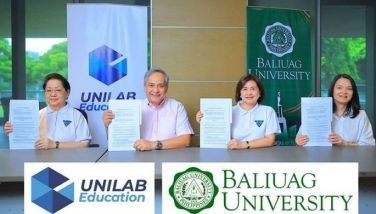The legal doctrine of executive privilege
Is the Philippine government too fixated on investigations instead of writing laws for the good of the people? Is there no more separation of powers? Is the principle of check and balance being abused?
At the rate that investigations are being conducted by both houses of Congress, many executive officials are diverted from their daily functions just to attend too many Senate and House investigations. And more than not, too many officials are invited at the same time, spending six to 10 hours waiting to be interrogated. Their functions are left behind, many documents aren’t attended to, and many clients aren’t given immediate services.
How can the executive branch of the Philippine government avoid too much disturbances by the Senate and the House, via the conduct of so many investigations supposedly in aid of legislation, if such investigations appear to be used as a platform to embarrass the president and his administration?
The Supreme Court, as head of the judicial branch has explained the answer to this question along the fundamental constitutional principle of separation of powers and its corollary principle of check and balance. This was in the case of then Senate President Franklin Drilon v. Executive Secretary Eduardo Ermita, eta l, GR no 169777, the decision of which was promulgated on April 20, 2006. The writer of the decision is one of the most brilliant legal luminaries of the land, Madam Justice Conchita Carpio Morales.
This case commenced on September 28, 2005 when president GMA issued Executive Order no 464, supposedly ensuring observance of the principle of separation of powers, adherence to the rule on executive privilege and respect for the rights of public officials appearing in legislative inquiries, among others. The Senate filed with the Supreme Court a petition for certiorari and prohibition seeking to nullify EO 464 based on multiple grounds. Many other similar petitions were likewise filed.
One such petition was filed by Bayan Muna, followed by another by prominent lawyer Frank Chavez, and one by the Alternative Law Group, the PDP-Laban Party, and also by my good friend, former IBP national president Joel Cadiz and his fellow concerned lawyers. The petitioners questioned the actions of GMA and her subalterns of ignoring Senate invitations. The GMA administration objected to excessive legislative inquiries that appeared to infringe on executive privilege.
Section 1 of EO 464 requires presidential approval of all legislative appearances by Cabinet secretaries and department heads. This was upheld by the Supreme Court as valid. Section 2, paragraph a was also held valid as it defines the nature and scope of the privilege, which was provided to cover confidential and classified information, divulging of which may prejudice public interests. They may include military and state secrets, proceedings in closed-door Cabinet meetings and other similar matters.
The Supreme Court however declared as unconstitutional section 2, paragraph b which includes subordinate officials to be covered by such privilege. Also nullified was section 3 of the EO which required prior presidential consent to the appearances before the Senate and the House of such subordinate officials of the government. It declared the doctrine of executive privilege shouldn’t be overextended to cover minor government officials.
We need to know that the concept of executive privilege is one that our legal system copied from the US. In American jurisprudence, it’s understood as the inherent power of government to withhold information from the public, the courts, and Congress. In practice, it usually refers to the inherent power of the president and high-level executive officers like Cabinet members to refuse to share information to protect national security and higher public interest.
The problem with the EO issued by GMA was that it was an overkill as it encompassed even division chiefs and service chiefs below the level of Cabinet members. It also borders on executive refusal to be checked and to evade legislative oversight inquiries and even impede judicial review. The EO in question was an act of the executive power refusing to be checked and balanced by the other two branches of government.
In the current situation involving the Palace, through Executive Secretary Luke Bersamin, sending a letter to Senator Imee about Cabinet members' inability to attend more hearings on the Duterte arrest, I believe the brothers Johnvic and Boying Remulla are covered by executive privilege, they being Cabinet members. It’s my firm belief, however, that they need to attend, albeit they cannot be compelled to divulge information covered by executive privilege.
- Latest




















